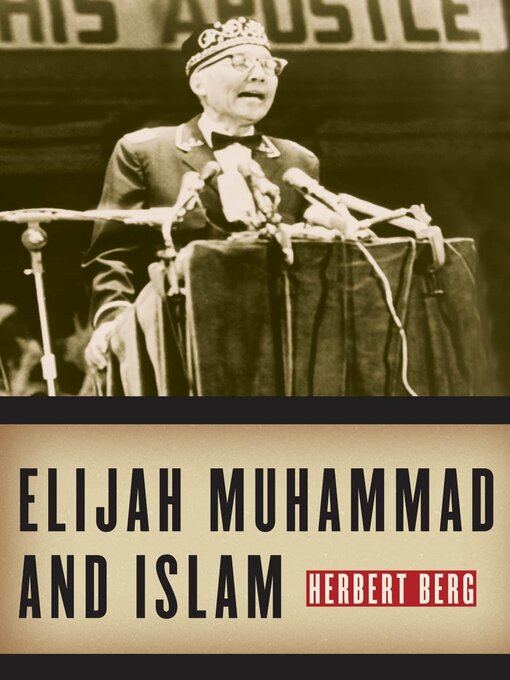Elijah Muhammad is arguably the most significant figure in the history of Islam in the United States. Successor to W. D. Fard, the founder of the Nation of Islam, and a mentor to Malcolm X, Elijah Muhammad led the Nation of Islam for over forty years.
In Elijah Muhammad and Islam, Herbert Berg focuses on Elijah Muhammad's religiosity, which is frequently brought into question as the authenticity of the Nation of Islam as "truly Islamic" remains hotly debated. To better comprehend this powerful and controversial figure, Berg contextualizes Elijah Muhammad and his religious approach within the larger Islamic tradition, exploring his use of the Qur'an, his interpretation of Islam, and his relationships with other Muslims. Above all, Berg seeks to understand—not define or label—Muhammad as a Muslim. To do otherwise, he argues, is to misunderstand and distort the man, his teachings, his movement, and his legacy.
- Available now
- New eBook additions
- New kids additions
- New teen additions
- Most popular
- Try something different
- See all
- Available now
- New audiobook additions
- New kids additions
- New teen additions
- Most popular
- Try something different
- See all

